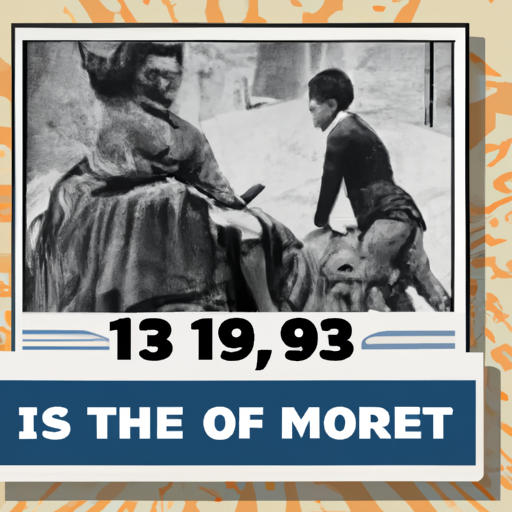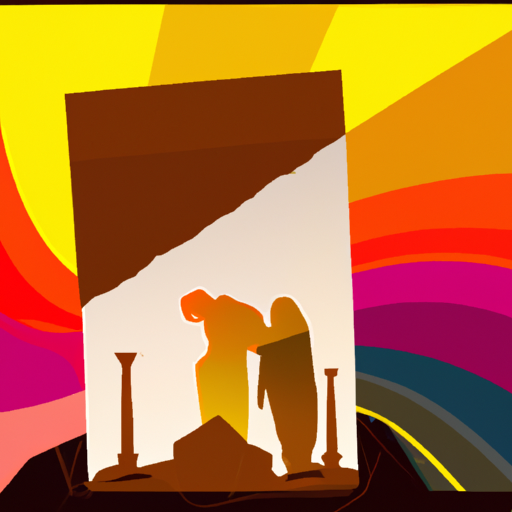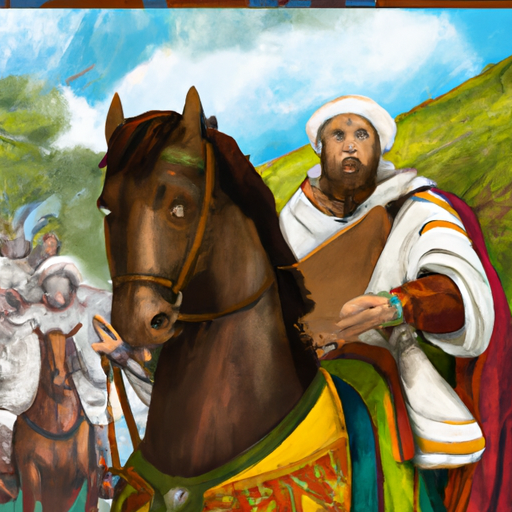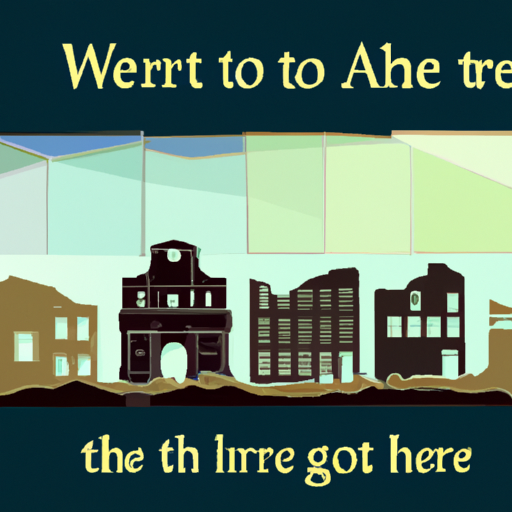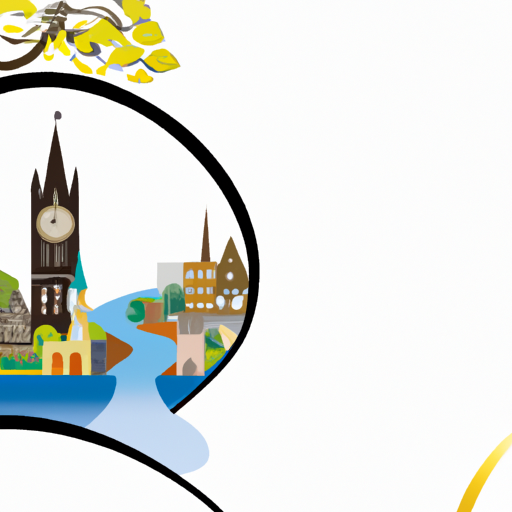Exploring the History of Egyptians: Are They Arabs or Not?
Unearth the past to find an answer to the enigma: Are Egyptians Arabs or not? Delve into the depths of antiquity and discover what lies hidden beneath. Uncovering the truth can be a journey, but is there a definitive answer? What does history have to say about this perplexing query? Unravel the secrets and learn more about this mysterious conundrum.

Investigating the question of whether Egyptians are Arabs or not necessitates an examination of history. Ancient documentation and artifacts provide information that can help us find the answer. The ancient Egyptians were a population living in the Nile Valley, distinct from other groups in the region. They had their own language, religion, and culture; some historians even suggest they were more closely related to Africans than to Arabs.
The Arabization of Egypt began during the 7th century AD with Muslim forces conquering the country and introducing Arabic as the primary language, along with Islam as the official religion. Subsequently, much of Egyptian culture was replaced by customs from Arabia and other Middle Eastern countries.
Thus, while modern-day Egyptians have been heavily impacted by Arab culture and identity, it would be incorrect to assert they are Arabs. The history of Egypt showcases a diverse amalgamation of different peoples over time forming a unique culture that is neither exclusively African nor Arab but its own entity.
.
Introduction
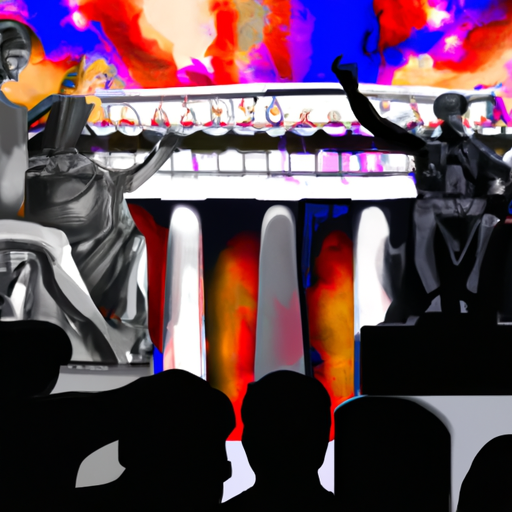
Controversy has surrounded the issue of whether Egyptians constitute Arabs or not for countless years. With some claiming they are, while others vehemently refute this notion, the answer to this dilemma largely depends on how one defines an Arab. Generally speaking, an Arab is someone who speaks Arabic and adheres to an Arab culture and heritage. Nonetheless, there is no single definition of what it means to be an Arab as various ethnic groups in the Middle East identify as such.
Historically, Egypt has long been considered part of the Middle East and had close ties with other countries in the region for centuries. Presently, a majority of Egyptians consider themselves Arabs due to their common language and cultural background. Nevertheless, there is also a sizeable population of Coptic Christians in Egypt who don’t regard themselves as Arabs but rather as members of their own unique ethnic group. In conclusion, whether or not Egyptians are viewed as Arabs is a subjective matter that differs from individual to individual.
– Historical Origins of the Egyptian People
Awe-inspiring and enigmatic, the Egyptian people’s story is one that spans back to antiquity. Archaeological records indicate that the first human inhabitants of the land by the Nile were hunter-gatherers, living in the area about 10,000 years ago. Subsequently, these early settlers began to cultivate crops and domesticate animals, paving the way for a more settled lifestyle. By 3100 BC, Egypt had evolved into an unified kingdom beneath Pharaohs’ rule. During this period, Ancient Egypt established itself as one of the most influential civilizations in world history – leaving behind remarkable monuments and artifacts which still stand today. The Egyptians developed an advanced writing system, mathematics and astronomy – laying down the foundations for many modern scientific disciplines. Throughout its long history, Egypt has been subject to foreign invasions and saw times of decline as well as resurgences in political power. At present day, it is a modern country with a vibrant cultural legacy which continues to attract visitors from all over the world.
– How Ancient Egypt Influenced Arab Culture
Throughout the ages, something has cast a long shadow over Arab culture. From language to art and architecture, many aspects of Arab customs can be traced back to a distant source.
The Arabic tongue is heavily intertwined with ancient Egyptian hieroglyphs and Coptic speech, which flourished between the 2nd century BC and 17th century AD. Numerous words used in contemporary Arabic are derived from archaic Egyptian terms, including those for government and religion.
Architecture of yore also had a powerful impact on Arab culture. Many mosques built in the Middle East were inspired by age-old Egyptian temples, featuring domed ceilings and elaborate stone carvings. The Great Pyramid of Giza is one of the most iconic symbols of Ancient Egypt, its influence visible in many Islamic monuments across the world.
The art and literature of Ancient Egypt have been pervasive influences on Arab culture too. Much of modern Islamic art has been influenced by ancient Egyptian paintings and sculptures, while numerous stories found in popular Arabic literature have their roots in ancient Egyptian mythology.
To sum up, it’s plain to see that Ancient Egypt has had a lasting effect on Arab culture over time. From language to architecture to art and literature, much of what we know as “Arab” today owes its existence to this great civilization from thousands of years ago.
– The Role of Religion in Defining Egyptian Identity
For centuries, religion has been a fundamental part of Egyptian identity. Ancient Egyptians held that the gods were responsible for creating the world and its inhabitants, and this faith system shaped their culture, values, and sense of self. The ancient Egyptian pantheon was composed of many gods and goddesses who were venerated as protectors and providers; Ra, Osiris, Isis, and Horus being among the most significant.
Religion pervaded every facet of ancient Egyptian life. Pharaohs were believed to be divinely appointed rulers chosen by the gods to lead Egypt; temples were erected in honor of these deities and used for religious ceremonies such as sacrifices; priests served as intermediaries between humans and gods. Religion was also closely tied to everyday life with festivals dedicated to particular deities throughout the year. Moreover, the concept of Ma’at was a major part of ancient Egyptian religion which championed justice, truth, balance, order, harmony, and morality – all values that are still seen in modern-day Egypt today. These beliefs have been passed down through generations and continue to shape how Egyptians view themselves and their place in society even now. Religion remains an essential element in many people’s lives in Egypt with Islam being practiced by a majority of its population while Christianity is also present among some communities.
In short, religion has had an immense influence on defining Egyptian identity over time by influencing its culture, values, beliefs systems and moral codes which are still seen today in modern-day Egypt.
– How Language Has Shaped the Debate Around Arab-Egyptian Relations
Throughout the ages, language has been a powerful force in shaping Arab-Egyptian relations. From ancient hieroglyphs to modern-day dialects, language has been used as a tool for communication and an expression of cultural identity that can fuel debates between these two nations today.
The use of hieroglyphs by the Egyptians enabled them to interact with their neighbors and develop diplomatic ties with them, while also spreading their culture and beliefs throughout the region. This helped create an understanding between the different nations in the area, which was essential for maintaining peace and stability.
As time went on, Arabic began to be adopted by many Egyptians who sought to express their own identity through language. This led to a shift in power dynamics within Egypt, as those who spoke Arabic began to gain more influence over those who spoke other languages such as Coptic or Greek. This linguistic divide created tension between Arabs and Egyptians, which often flared up into debates about politics and religion.
Today, language continues to play a major role in Arab-Egyptian relations. Although Arabic is now widely spoken in Egypt, there are still many people who speak different languages such as Coptic or Berber that are not always given equal recognition or respect by those who speak Arabic. This can lead to disputes about how different cultures should be represented within society, as well as arguments about whether certain languages should be given official status or not.
– Examining the Impact of Colonization on Arab-Egyptian History
A period of bewildering transformation befell Egypt in the 19th century, with the British and French occupations bringing a plethora of changes to the nation’s political, economic, and cultural landscape. This colonization had far-reaching consequences that reshaped the country’s social structure and political system, as well as instigating a rapid modernization process that propelled Egypt into becoming one of the most powerful countries in the Middle East.
The British invasion of Alexandria in 1882 marked the beginning of colonial rule, which involved imposing new laws and regulations on Egyptian society such as taxes and restrictions on trade, while abolishing slavery and replacing it with a system of indentured labor. The French occupation in 1914 was initially welcomed by many Egyptians who believed they would bring progress and modernity to their country; however, this hope soon dissipated due to heavy taxation and control over large portions of their economy, leading to widespread poverty among citizens.
Colonization also had a considerable effect on Arab-Egyptian culture and religion. European ideas about education and religion were introduced into Egyptian society which altered traditional beliefs about gender roles and family structure among other things. Furthermore, European languages like French became commonplace throughout Egypt while Arabic was increasingly viewed as backward or primitive by many educated elites.
The impact of colonization is still felt today in Arab-Egyptian history through both positive aspects like modernization and progress as well as negative ones such as poverty and inequality that have lingered for centuries since its end.
conclusion
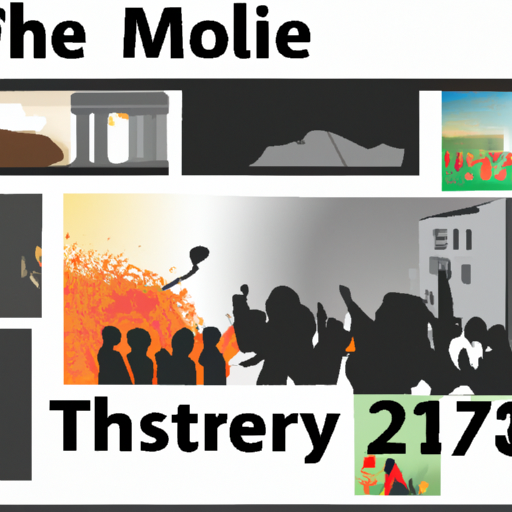
A difficult query to answer, the relationship between Egyptians and Arabs is a multifaceted one. Ancient Egyptian civilization has been in existence for millennia, existing well before any Arab identity was established. Yet, in the present day, many cultural similarities can be observed between Egypt and other Arab countries. Despite this, Egyptians still retain a unique identity that separates them from the rest.
.
Some questions with answers
Q1: Are Egyptians Arabs or not?
A1: Egyptians are not considered Arabs, but they do have a long history of cultural exchange with Arab countries.
Q2: How long has Egypt had cultural ties with Arab countries?
A2: The cultural ties between Egypt and Arab countries date back to the 7th century when Islam spread throughout the region.
Q3: What language is spoken in Egypt?
A3: The official language of Egypt is Modern Standard Arabic, although many people also speak colloquial Egyptian Arabic as well as other languages such as English and French.
Q4: How did the relationship between Egypt and Arab countries evolve over time?
A4: Throughout history, there have been periods of both cooperation and conflict between Egypt and Arab countries. In recent years, however, relations have improved significantly due to increased economic ties.
Q5: How does the culture of Egypt differ from that of other Arab countries?
A5: While there are similarities between Egyptian culture and that of other Arab countries, there are also significant differences. For example, while many Arab countries practice Islam as their primary religion, in Egypt Christianity is also widely practiced. Additionally, Egyptian art and architecture have distinct styles that differ from those found in other parts of the Middle East.
